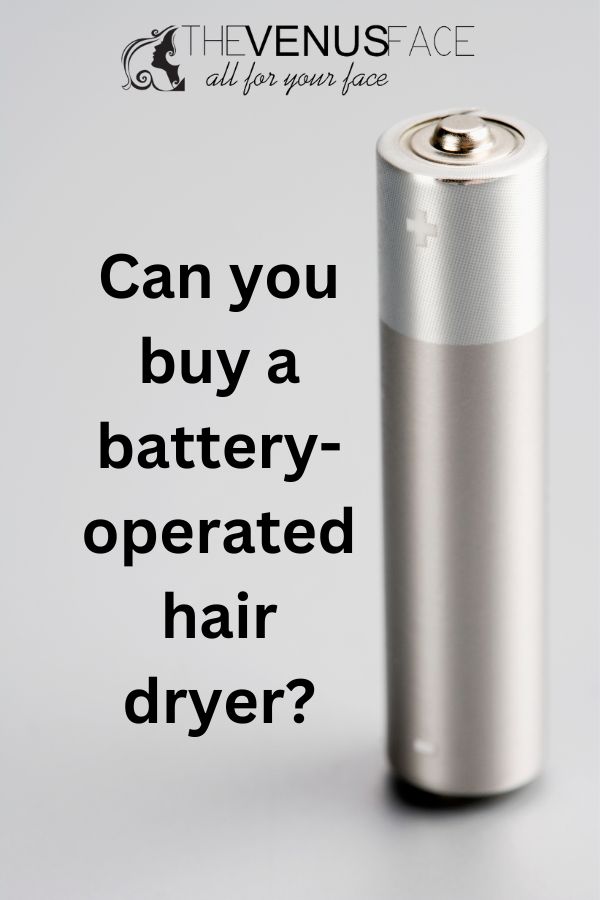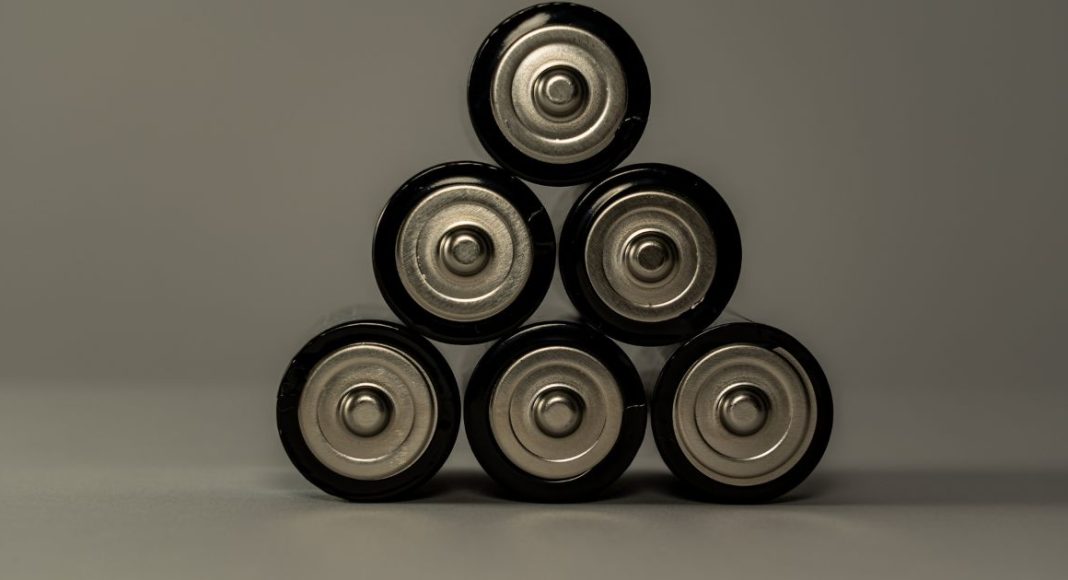Hair dryers have become an indispensable tool for many people, helping us dry and style our hair quickly and effortlessly. We often rely on them to get ready in the morning or before a special occasion. However, what if you find yourself in a situation where access to electrical outlets is limited or unavailable? Can you buy battery-operated hair dryers to solve this problem? In this article, we will explore the world of battery-operated hair dryers, their pros and cons, factors to consider before purchasing, popular models in the market, alternatives, tips for prolonging battery life, customer reviews, and address frequently asked questions.

Can you get a battery-operated hair dryer?
Yes, you can buy battery-operated hair dryers. Battery-operated hair dryers are cordless and use rechargeable lithium batteries instead of a power plug to function. They are designed to provide convenience and portability, especially when traveling or in situations where electricity is not readily available. Battery-operated hair dryers are lightweight, compact, and easy to pack in a suitcase. They can be used even during power outages, allowing you to continue blow-drying your hair as usual. These hair dryers are available for purchase online through various retailers.
Best battery-operated hair dryers
You can buy top rated battery operated hair dryers here:
No products found.
The Advantages of Battery-Operated Hair Dryers
Portability and Convenience
Battery-operated hair dryers are designed with portability in mind. No more dealing with tangled cords or searching for available outlets. With these hair dryers, you can move around freely, making hairstyling a breeze. Traditional hair dryers with short cords need to be plugged in an extension cord or awkward positioning, limiting your flexibility and leaving you yearning for the convenience that battery-operated alternatives effortlessly provide.
Ideal for Travel and Camping
Whether you’re jetting off to a faraway destination or enjoying the great outdoors, a battery-operated hair dryer can be your trusty companion. Say goodbye to damp hair ruining your vacation photos! More: Can You Put a Hair Dryer in Checked Luggage?
Emergency Use during Power Outages
We’ve all experienced unexpected power outages, and they often occur at the most inconvenient times. Having a battery-operated hair dryer ensures you can maintain your grooming routine even in emergencies.
The Drawbacks of Battery-Operated Hair Dryers
Limited Run Time
Battery-operated hair dryers have a finite amount of power stored in their batteries, which means they have a limited run time. Depending on the model, you may get anywhere from 10 to 40 minutes of usage before the battery needs recharging.
More: How Long Can a Hair Dryer Run?
Charging Time and Battery Life
Charging battery-operated hair dryers can take several hours, which might be a downside if you’re in a hurry. Additionally, over time, the battery’s performance may degrade, resulting in shorter usage periods.
Heat and Power Output
Compared to traditional hair dryers, battery-operated ones might have lower heat and power output due to the limitations of battery technology. While they are sufficient for quick touch-ups, they may not provide the same level of performance for more demanding styling requirements.
Battery-Operated Hair Dryers vs. Traditional Hair Dryers
When considering a battery-operated hair dryer, it’s important to understand how they compare to traditional hair dryers.
Performance and Efficiency Comparison
Traditional hair dryers are generally more powerful and offer greater heat and air output compared to their battery-operated counterparts. If you have thick or long hair that requires significant drying time, a traditional hair dryer might be a better choice.
Environmental Impact and Sustainability
Battery-operated hair dryers are often perceived as more environmentally friendly since they consume less energy. However, the environmental impact of batteries and their disposal should also be taken into account when evaluating their overall sustainability.
Choosing the Right Battery-Operated Hair Dryer
When selecting a battery-operated hair dryer, there are a few factors to consider:
Considerations for Purchase
Look for a hair dryer with a battery life that suits your needs. Consider the weight, size, and ergonomics to ensure comfortable handling. It’s also essential to check the heat and power settings to ensure they meet your styling requirements.
More: Best hair dryer for black hair
Popular Brands and Models
Research popular brands are known for their quality and reliability. Look for customer reviews and ratings to gain insights into the performance and durability of specific models.
How to Use a Battery-Operated Hair Dryer
Using a battery-operated hair dryer is straightforward, but it’s essential to follow a few guidelines:
Charging and Maintaining the Battery
Before using your hair dryer, ensure it’s fully charged. Follow the manufacturer’s instructions regarding charging times and proper maintenance to prolong the battery’s lifespan.
Proper Usage and Handling
Handle your battery-operated hair dryer with care. Avoid dropping it or exposing it to water to prevent damage. Use the hair dryer as directed, and avoid excessive or prolonged usage to preserve battery life.
Battery Technology and Innovations
Battery technology is continuously evolving, leading to potential improvements in battery-operated hair dryers:
Advancements in Battery Technology
Manufacturers are investing in research and development to enhance battery life, reduce charging times, and increase overall performance. Keep an eye out for newer models that incorporate these advancements.
Potential Future Improvements
The future of battery-operated hair dryers looks promising. With ongoing advancements in battery technology, we may see even more efficient, powerful, and longer-lasting devices hitting the market.
Are Battery-Operated Hair Dryers Safe?
Battery-operated hair dryers are generally safe to use, but it’s important to follow safety precautions:
Safety Precautions and Guidelines
Read and adhere to the manufacturer’s safety instructions. Avoid using the hair dryer near water or in wet conditions. If you notice any signs of damage or malfunction, discontinue use and seek professional assistance.
More: Can Hair Dryers Set off Fire Alarms?
Regulatory Standards and Certifications
Look for hair dryers that comply with industry standards and possess safety certifications. These certifications ensure that the product has undergone testing and meets specific safety requirements.
More: Do Hair Dryers Have Overheat Protection?
Conclusion
Can you buy battery-operated hair dryers? Yes! Battery-operated hair dryers offer convenience and portability for individuals on the go, travelers, and those who want a backup during power outages. While they have certain limitations, such as limited run time and lower power output, they provide a valuable solution for specific situations. By considering factors such as battery life, charging time, and overall performance, you can choose the right battery-operated hair dryer that suits your needs and preferences.
FAQs
What is the average battery life of a battery-operated hair dryer?
The average battery life of a battery-operated hair dryer ranges from 10 to 40 minutes, depending on the model and usage.
Can I use a battery-operated hair dryer while charging?
It is not recommended to use a battery-operated hair dryer while charging, as it may pose safety risks and affect the overall performance of the device.
Are battery-operated hair dryers suitable for all hair types?
Battery-operated hair dryers can be used on various hair types, but their lower power output might not be as effective for thick or long hair that requires extensive drying.
How long does it take to charge a battery-operated hair dryer fully?
Charging times vary depending on the model and battery capacity. It can take several hours to fully charge a battery-operated hair dryer.
Can I take a battery-operated hair dryer on an airplane?
Battery-operated hair dryers are generally allowed in carry-on luggage but may be subject to specific regulations and restrictions imposed by airlines. Check with the airline before traveling to ensure compliance with their rules.


